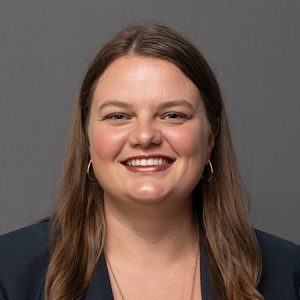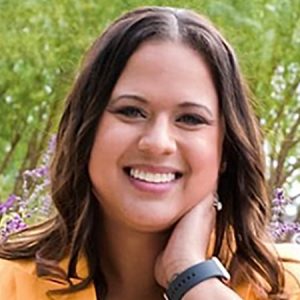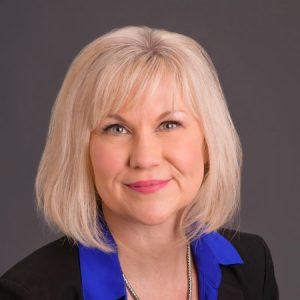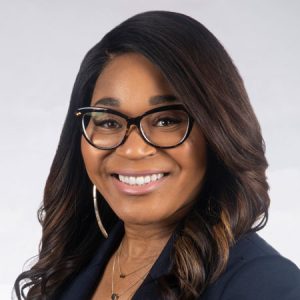Get started with Mizzou
Apply hereBachelor of Social Work
You've always been drawn towards social and economic justice. No one should die of hunger, be without safe, affordable housing, or lack access to employment or education. These are truths you know and hold to. Society is imperfect, and you want to do your part to help close gaps. That's why the online Bachelor of Social Work (BSW) is right for you.
This program was developed by Mizzou's School of Social Work. Housed within the College of Health Sciences, we've taught students how to better serve their communities for over 100 years. As a BSW student, you'll learn from leading experts in social work and complete a practicum to put your knowledge to direct use.
The online BSW program prepares you for one of two tracks: a position in a direct human service profession or a graduate program. As a social work graduate, you'll be an asset to any human services employer.
About the BSW Online Program
This 120 credit-hour program is entirely online. It requires a 400-hour practicum, taken in your last semester. Students employed in a human or social services based organization may be able to complete these hours at their place of employment.
Up to 60 credit hours are transferrable if you already have credit hours from an applicable program. Upon graduation, you'll be prepared for a career in healthcare, case management, government or social justice. The BSW allows you a great deal of flexibility in following the career path of your choice. You can also transition to Mizzou's master's in social work on an advanced timeline to further your education.
- Students join the university as “pre-social work students” and apply to the professional social work program upon completing prerequisites. Learn more about this process.
- Please note: Pre-social work majors are not guaranteed acceptance into the professional BSW program. You must submit an application for admission to the professional BSW program when you are eligible.
Quick facts
Official name
Bachelor of Social WorkCampus
Program type
Bachelor's degreeAcademic home
College of Health Sciences | School of Social WorkDelivery mode
100% onlineAccreditation
Higher Learning Commission, Council on Social Work EducationFreshman credit hours
120Freshman estimated cost
$81,636.00Transfer credit hours
60Transfer estimated cost
$40,818.00*This cost is for illustrative purposes only. Your hours and costs will differ, depending on your transfer hours, your course choices and your academic progress. See more about tuition and financial aid.

Career prospects
Potential job titles include:
- School social worker
- Social and human service assistant
- Social and community service manager
- Social worker
- Mental health and substance use social worker
- Health care social worker
- Community and social services
- Paraprofessional
Program structure
The online bachelor’s in social work includes 120 credit hours, including prerequisites, 49 credit hours of required courses, a social work elective in a field of practice and additional electives. Courses are entirely online.
Coursework includes
- Interaction skills workshop
- Theory and practice of social group work
- Undergraduate field practicum
- Human Behavior in the Social Environment
- Social Statistics
- Social Justice and Social Policy
- Variations in Human Behavior
Review all requirements for the online bachelor of social work.
Delivery
100% onlineCalendar system
Semester-basedTypical program length
3 years, plus prerequisitesTypical course load
2 or 3 classes per semesterAccreditation
The University of Missouri is accredited by the Higher Learning Commission, one of six regional institutional accreditors in the United States.
The School of Social Work is accredited by the Council on Social Work Education.
Faculty spotlight

Ashley Givens teaches courses in both the bachelor's and master’s of social work programs. Dr. Givens’ primary research revolves around salient issues facing justice-involved individuals like criminal justice, early adult justice involvement, traumatic experiences of justice-involved individuals, and mental health and criminal justice. She focuses her work on traumatic histories, criminogenic risks and needs, and serious mental illnesses among early adults (18 to 29-year-olds) involved in the criminal justice system. Dr. Givens studies programming and interventions that provide opportunities to this population, as well as equip officers to be better prepared to assess the risks and needs of this age group. Recently, Dr. Givens has been working with probation and parole officers to build foundational knowledge around mental illnesses and their role for the individuals on community supervision.

Amy Mayes earned her doctorate in social work from the University of Southern California. Dr. Mayes’ area of interest is mental health and trauma in athletics. Her research work is in mental health support for student-athletes and is published in many respected journals.

Tiffany Bowman has worked in harm reduction related to opioid misuse and substance prevention. She has also worked with ThinkFirst National Injury Prevention Foundation, an initiative to provide advocacy, research and education on traumatic injuries. Her background and experience include providing technical assistance for clean indoor air policies to campuses and communities around the state of Missouri, grant project oversight and management and substance harm reduction related to high-risk drinking on college campuses. Bowman earned her master’s from Mizzou. Her career has been dedicated to public health and safety.

Christine Woods’ teaching interests are family and children practice, crisis intervention, human development, child development, community services coordination, family dynamics and interaction, and field instruction. Woods’ earned her doctorate of education from Mizzou.
